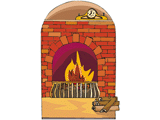Remember ancient music used exclusively the modes - not the scales as we know them today or during the time of Schubert, born 1797, Handle who died in 1759 or even Bach who died in 1750.
Each of the modes have a rather mournful sound and had a meaning so that some were used for a time of day and some were reserved for a certain occasion -
Unfortunately on youtube there is a plethora of young musicians who learned the modes AFTER they learned the modern scales - they learn the modes because jazz often is tuned to a mode - they youtube teach thinking the mode comes off the modern scale and the only way they give any credit to its ancient background is to describe modes as church music from the middle ages - so now on youtube there is a description that has become popular called church modes. grrrr
The modes are heard in the old mountain music brought here by the very early settlers from England, Scotland and Ireland. Their music goes back before the late fifteenth century and was the stuff of the old tunes sung during the folk music era of the 60s - not Peter Paul and Mary who sang harmonies as Polyphony but rather folks who sang Monophony as Joan Baez.
It would be as if playing the piano with no black notes and going up the scale, each starting note has a name - there are no sharps and flats - the scale is do, ray, me, fa, so, la, ti, and then repeat an octave higher is another do. However, we are so used to hearing the major and minor scales we no longer readily hear the sound of a mode.
A youtube with the modes, the best examples are among the mountain singers - the younger generation is doing more with the instrument so it is more difficult to find music as it was originally played and sung within the modes.
If you watch this and see how one hand plays the tune and the other is a drone sound - that is how ancient folks sang - there was one voice - often beautiful in its high notes but a single voice with a chorus that created a background drone.
https://www.youtube.com/watch?v=rZWZ7KpB5ZgHearing the monophony - one voice or more than one voice but singing the same tune - maybe another singing an octave higher but no harmony - the best way to hear it is to attend a Catholic High Mass where the priest is singing from tunes that some are from the years 400 - any accompaniment would be a drone sound from an organ or a repeat by a choral group usually in a lower register - today we hear the word plainchant used to describe this kind of music.
Here is the Angelus sung in one voice even thou there are multiple voices as a background they are still singing as one - they are providing a drone -
https://www.youtube.com/watch?v=g7BbncHyw9EOnce we have harmony - two or more voices singing tunes different from each other or music played with harmony accompanying the main singer or instrument, we move into the late middle ages - A poem from
before Shakespeare that may have been put to music would have been with a single voice or a single note on an instrument following a melody that was played or sung in one of the modes, that all have a mournful sound.
Even the troubadours and minstrels of the 11th century only had the modes as today we have scales - research lets you go back to the history of music in Jerusalem before the destruction of the second temple when both men and women had an obligation to sing at a certain number of services - afraid the street music would enter the temple after the destruction of the first temple women were bared from singing in temple - The music used the modes with a single voice chanting the words.
Nothing happens all at once in music and where in isolated locations polyphony was played there is only a few musicians in the British Isles who composed polyphony for the church in the 13th and 14th century - villagers did not travel far and wide so the music of the people continued in the old monophony using modes till the early seventeenth century when their music was influenced by hearing in church the music of Bach, the rock star of the day.
The young today learn their scales and in order to learn the modes they are using their knowledge of how scales are built suggesting the modes came from a scale - it is the other way round.
The
Aeolian mode is as close as you can get to a
minor key scale today and the
Ionian mode which is the same as our
major C today and therefore, makes it easy to play on an old instrument music from today.
An example of a
Dorian mode
https://www.youtube.com/watch?v=Zk29p3JBHEAAn example Wayfaring Stranger in the
Aeolian mode
https://www.youtube.com/watch?v=3J_5A622wT4Lydian mode on the Celtic Harp
https://www.youtube.com/watch?v=PwW5lBd48B8Mixolydian mode sung typical of ancient music or plainchant however, she is playing a harmony rather than a drone
https://www.youtube.com/watch?v=qvbFFk6qM70The
Phrygian mode tuning
https://www.youtube.com/watch?v=_FXSkZtmf-Q The
Ionian mode - Joan Baez sings and plays the old old
Four Mary's that is also called
Mary Hamilton - the Ionian mode is our C scale
https://www.youtube.com/watch?v=HMHOJcdn3eQ